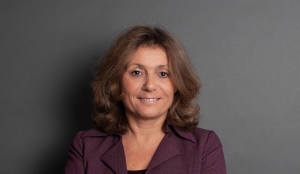ARCEP plans (again) to revise the National Numbering Plan: only 16 days left to participate in the public consultation
ARCEP launched a public consultation on a new draft amendment to the National Numbering Plan. The public consultation is opened until 18 February 2022. These new provisions aim at modernizing the framework for the allocation and use of numbering resources.
Since 2018 the National Numbering Plan has undergone numerous revisions. This new draft proposed by ARCEP tends to meet the new uses and needs of users and operators. This document also brings some changes taking into account the transposition into French law of the European Electronic Communications Code.[1].
Operators - or any interested actor - are invited to send their contributions before 18 February 2022, and more specifically on the 34 questions posed by ARCEP.
Among other things, ARCEP plans to adopt the following measures:
• The creation of 09 numbers dedicated to communications with "technical platforms" and the restriction of the use of mobile numbers to interpersonal purposes only
ARCEP plans to reserve a new category of 09 numbers for exchanges between technical platforms and mobile subscribers. ARCEP specifies that the new category of 09 numbers could, for example, be used to establish message conversations between a retailer and its customer, or for very short-term use of telephone numbers for certain temporary contact situations via a platform (deliverers, VTC drivers, etc.).
This measure is also in line with the emergence of new mobile uses. Indeed, the regulator wishes to reserve the use of 10-digit mobile numbers beginning with 06 and 07 for interpersonal communications (between two people) in order to avoid any risk of shortage of these numbers. This measure will make it impossible in practice to use mobile numbers for customer relationship management. The impact for operators and their customers is major. However, no transitional provision is foreseen.
• Reinstatement of measures to control the conditions of use of resources by automated systems
While the Council of State (“Conseil d'Etat”) - France’s highest administrative court - had ordered the repeal of similar previous provisions of the National Numbering Plan in its decision of 12 February 2021; a law of 15 November 2021[2] has explicitly given ARCEP the power to regulate the conditions of use of numbering resources by automated systems. ARCEP can now specify: (i) the categories of numbers that cannot be used as caller ID to be presented to the recipient for communications made by automated calling and messaging systems and (ii) the measures that operators may implement to interrupt the routing of calls and messages.
It is within this context that ARCEP foresees in its draft revision of the Numbering Plan that certain territorialized numbers (geographic numbers, multipurpose numbers, multipurpose numbers used for exchanges with a technical platform and 10-digit mobile numbers) cannot be used as a caller ID presented to the called party for calls or messages sent by automated systems.
ARCEP also specifies the exceptions to the prohibition on the use of automated systems. ARCEP proposes that this prohibition does not apply to automated calling and messaging systems:
- who make calls or messages to 5 or fewer different telephone numbers in a 30-day period;
- whose number of messages sent is equal to or less than the number of messages received (within 20%), over a 30-day period;
- where the number of calls made is less than or equal to 20% of the number of calls received, over a 30-day period.
• New provisions to prevent shortages and improve scarcity management
In response to the growing demand for numbering resources, particularly as a result of new uses, ARCEP is proposing a series of measures to enable more efficient management of these numbering resources by further rationalizing:
- the allocation of resources by the Authority: in particular, ARCEP submits to the operators for their opinion the allocation of new numbering resources at a minimum granularity of 1,000 numbers, instead of 10,000 numbers as previously;
- number management: ARCEP proposes, among other things, that numbers assigned to French users should be assigned for a minimum of twelve hours and that the period during which an operator cannot reassign a number to an end-user should be reduced to between 45 and 90 days (rather than three to six months).
• Additional measures
In addition, the draft revision of the National Numbering Plan also includes other provisions concerning:
- modification of the conditions of use of extended length mobile numbers (0700): these will be used only for purposes of identifying mobile accesses intended exclusively for the provision of an Internet access service.
- the creation of a category of multipurpose extended length numbers;
- the use of multipurpose numbers and extended length mobile numbers to provide innovative services;
- the creation of two numbers with unmarked functionality for monitoring consumption and consulting messages;
- clarification of the territoriality conditions applicable to special and short numbers, etc.
The document submitted for public consultation until 18 February 2022 is available here.
[1] Directive (EU) 2018/1972 of the European Parliament and of the Council of 11 December 2018 establishing the European Electronic Communications Code.
[2] Law No. 2021-1485 aimed at reducing the environmental footprint of the digital economy in France





